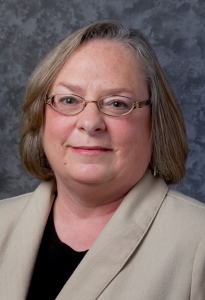
The Legislature is in overtime and is now on day 96 of what should have been a 90-day session.
Neither the House nor the Senate has been able to come to an agreement on how to fix the state’s looming budget deficit and unfortunately Gov. Brownback and Republican leadership in both chambers have decided to take a passive role in the process rather than working to come up with common sense solutions for the issues facing our state.
It remains an incredible honor to represent our community in the Kansas House of Representatives. While the Legislature is in session, I do my best to stay in touch and keep you informed by email, and I spend countless hours every week helping my constituents solve problems. If I can be of service to you or anyone you know call my office at 785-296-7371 or email me at [email protected]
Taxes
Both the House and Senate are in the process of considering revenue packages to fund the $406 million budget shortfall caused by the governor’s failed economic experiment.
The Senate tax committee passed a tax plan, which may be debated by the full Senate sometime this week. If it passes, the plan will come to the House for deliberation.
The Senate’s plan, as it stands now, raises taxes by over $1.6 billion in three years by:
• Suspending the tax break on some businesses, and replacing it with a tax credit if they hire employees
• Decreasing the food sales tax to 6.0% but raising all other sales to 6.5%
• Raising the gas tax by $0.05 cents per gallon
• Eliminating or reducing income-tax deductions, including the personal property taxes and home mortgage interest deductions
• Taxing cigarettes an additional $0.50 per pack
• Taxing other tobacco products at a higher rate
• Granting an amnesty tax period where individuals can pay their back taxes without penalty
• Freezing income tax breaks
• Lowering taxes on new vehicles to spur additional sales, thus generating more in taxes.
Although members in the House tax committee met all week, they could not come to an agreement on how to fund the budget. They will begin meeting again early next week, and will hopefully develop a plan that will then be debated by the entire House of Representatives for consideration.
Several lawmakers in both chambers have proposed a number of tax increases to help the state make ends meet including increasing sales taxes, raising property taxes, taxing certain kinds of income, and taxing gas, tobacco, and alcohol at higher rates.
One Republican lawmaker in the House has also proposed removing the sales tax exemption on public construction projects, meaning school districts, county and city governments, state agencies and some hospitals would have to begin paying sales tax on new construction projects. I am opposed to this measure because it is essentially the state taxing itself and would increase the cost of building projects and potentially increase taxes, prevent some projects from moving forward and have a negative impact on jobs.
As proposals continue to be introduced, I will consider any plan that is fair, equitable, and sustainable and puts the needs of Kansas’ families first.
Budget
The House and Senate conference committee is nearing a compromise on the final budget, and as it stands now will require more than $380 million in new taxes to fund the 2016 fiscal year. If an agreement cannot be reached on taxes, cuts will be necessary to balance the budget.
The committee was able to reach a final agreement on the state’s judicial budget this week. The appropriations bill includes a component that forces the court’s hand into ruling a certain way on a case involving the state in order to receive funding. The Legislature it is essentially extorting the court into ruling in favor of the state, which is not good government.
Changes to local elections
Although there was little progress made on the budget this week, the House voted to move local elections for offices like school board and municipal officials from the spring to November of odd-numbered years.
I voted no. Our local school boards and city governments have opposed the issue, citing that it creates unnecessary challenges. Newly elected officials would take office in January, meaning their terms would start in the middle of a fiscal year where they were not part of the budgeting process.
Kobach prosecutorial powers
The House narrowly approved legislation that grants authority to the secretary of state to criminally prosecute voter fraud. The bill, which was approved by the Senate earlier in the session, will now go to the governor’s office where he is expected to sign it into law. I voted no because it impedes on local control by allowing the secretary of state to over step locally elected county and district attorneys in the prosecuting process.
I am also concerned about another provision in the bill that will allow gifts of $3 or less to be given to voters. Under current state statute, it is illegal and considered election bribery to distribute items of tangible monetary value. Changing the law sets a dangerous precedent, and potentially exposes the democratic process to corruption. To voters $3 might seem not seem like much, but it is a matter of principle – there is no price on democracy and votes should never be bought.
Agreement reached on Uber
The governor signed a bill on Friday that the House and Senate approved earlier this week that puts into law a compromise reached between the state and Uber. The agreement:
• Requires Uber drivers to purchase comprehensive and collision insurance if their car is under the lien.
• Requires background checks, and prohibits Uber from hiring drivers whose backgrounds includes conviction of certain crimes.
This legislation replaces previous legislation that the governor vetoed, but the Legislature voted to override because it protected consumers.
